2024-05-09
The Benefits of a Playground for Child Development
Playgrounds are more than just a place for children to expend pent-up energy; they are vital environments that contribute to a child’s development in numerous ways. From physical benefits to cognitive growth, playground equipment supports various aspects of child development, fostering skills essential for life. These spaces allow children to engage in essential motor skills activities, develop problem-solving abilities, and learn social norms through interactions with other kids.
Beyond their role in promoting physical activity, playgrounds offer a safe space where kids can explore their surroundings, engage in imaginative play, and develop social skills. Playgrounds in community parks and city playgrounds serve as a common ground where children of different ages and abilities can interact, play games, and learn from each other. This interaction enhances their social and emotional development and teaches valuable empathy, cooperation and inclusivity lessons. Children build self-confidence and resilience by navigating the diverse challenges of various types of playground equipment.
This article explores the diverse benefits of playgrounds and how different types of equipment support various aspects of child development. From enhancing physical development with monkey bars and climbing walls to fostering cognitive skills through puzzles and themed playgrounds, playgrounds play a crucial role in nurturing well-rounded, healthy children. Investing in quality playgrounds is essential for promoting an active lifestyle, improving mental health, and ensuring the well-being of children and the entire community. By understanding and maximizing the benefits of playgrounds, we can create enriching environments that support the growth and development of every child.
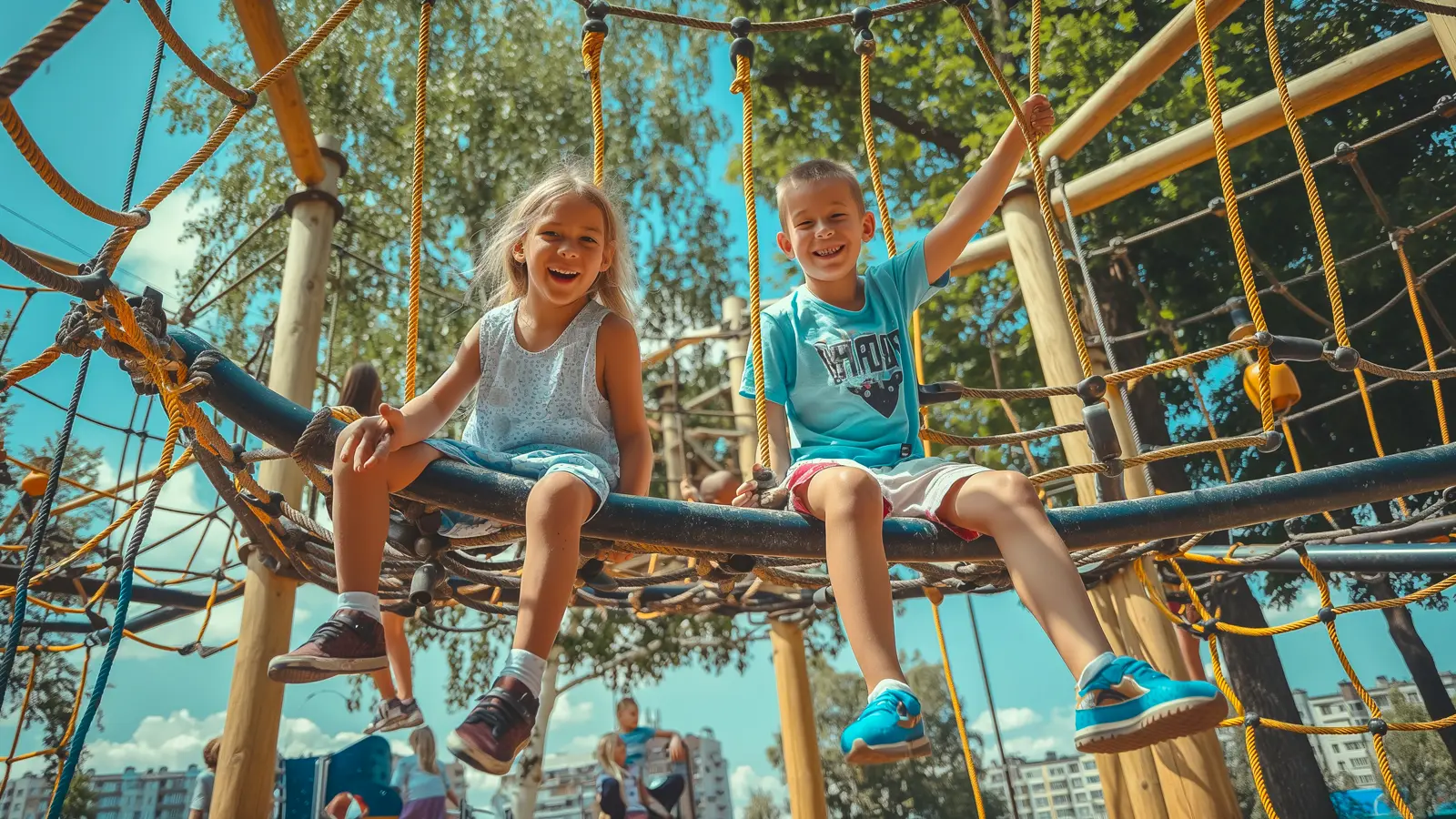

Physical Development
Playgrounds are fundamental for promoting physical development in children. The physical activity involved in playground play helps develop essential motor skills, including fine and gross motor skills. For example, climbing structures like monkey bars and climbing walls enhance upper body strength and coordination. These activities are crucial for younger children still developing these vital skills.
Outdoor play also contributes to a child’s overall fitness and health. Various playground equipment, such as swings and slides, encourages kids to be physically active. This physical activity is fun and helps improve balance, coordination, and overall fitness. Additionally, playground play helps children build body awareness, an essential aspect of physical development.
- Gross Motor Skills: Equipment like swings, slides, and climbing structures encourages physical activity, improving balance, coordination, and overall fitness.
- Fine Motor Skills: Play equipment that involves grasping, such as monkey bars, helps develop fine motor skills critical for tasks like writing and buttoning clothes.
- Physical Benefits: Regular physical activity on playgrounds helps combat childhood obesity and promotes an active lifestyle, which is beneficial for long-term health.
Engaging in these activities helps children improve their physical abilities and build self-confidence. Playgrounds’ physical benefits extend beyond individual growth, contributing to the overall health of the entire community by encouraging active lifestyles. Playgrounds in community parks and city playgrounds provide a safe space for children to play, which helps promote an active lifestyle and enhances the well-being of physically active students and community members.
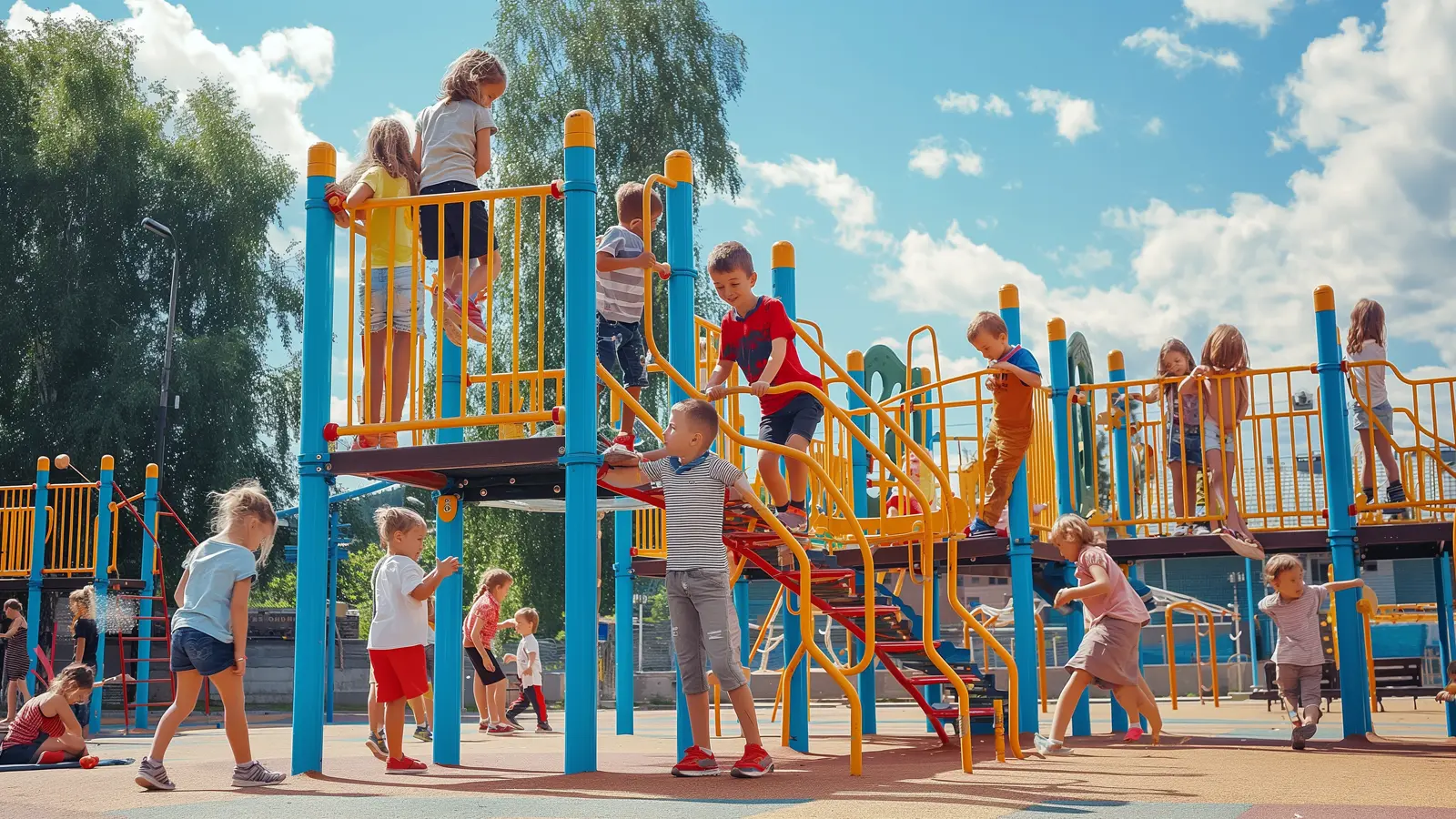
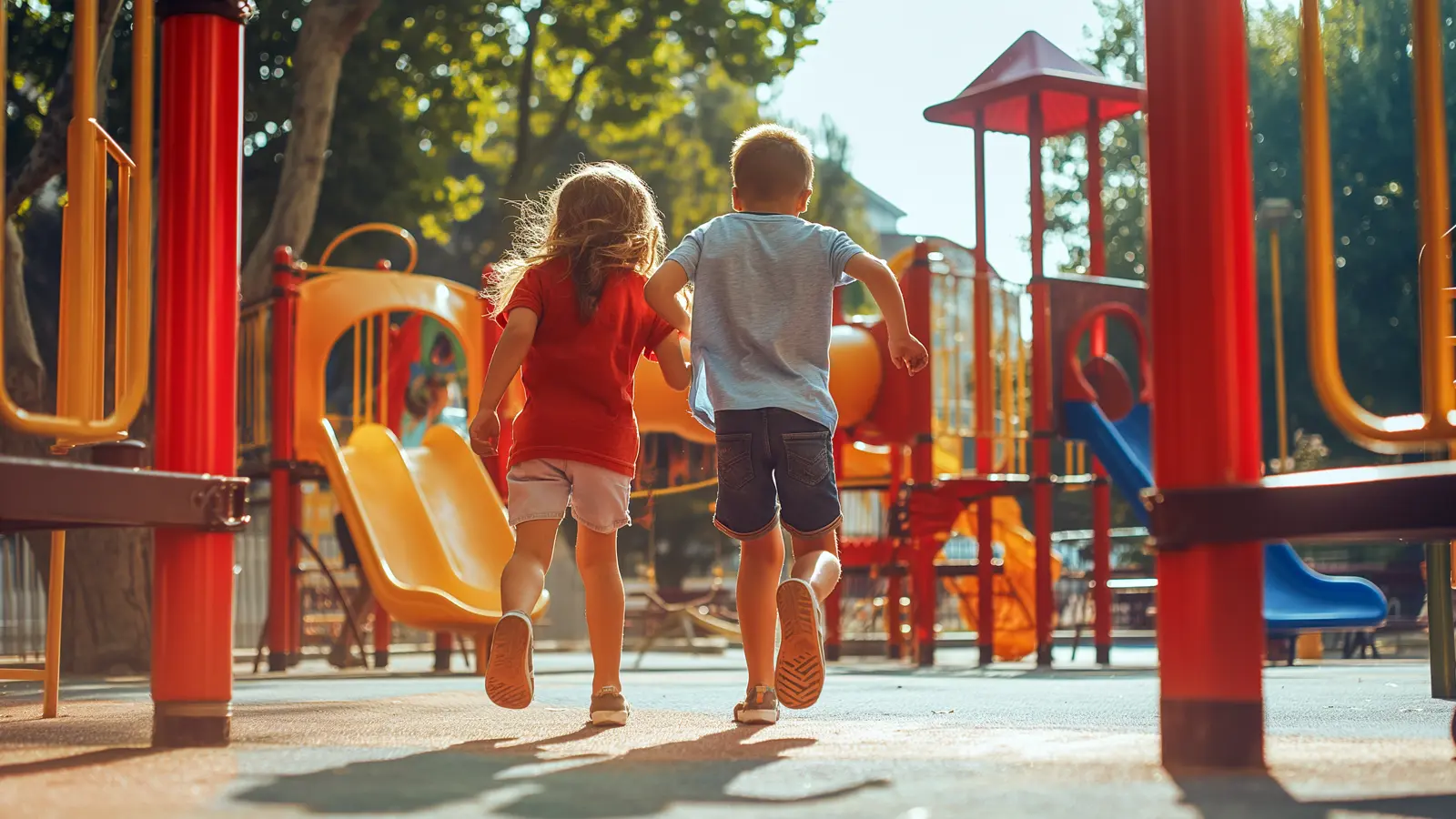
Cognitive Development
Playgrounds also play a significant role in cognitive development. Interactive and challenging playground equipment promotes problem-solving abilities and cognitive skills. For instance, themed playgrounds with puzzles and mazes stimulate cognitive growth and creativity. Engaging with such equipment allows children to explore different scenarios, enhancing their problem-solving abilities and critical thinking.
Additionally, playgrounds encourage imaginative play and help kids build creativity and cognitive skills. Play areas with playhouses and themed zones provide imaginative play opportunities, fostering cognitive development. Children learn to create stories, roles, and scenarios, promoting creativity and mental flexibility. These experiences are particularly beneficial for early childhood development, where imaginative play is crucial.
- Problem-Solving Abilities: Equipment that challenges children to think, such as mazes and puzzles, enhances cognitive development and critical thinking skills.
- Imaginative Play: Play areas encouraging imaginative play, such as playhouses and themed zones, help kids build creativity and cognitive skills.
- Outdoor Learning: Playgrounds serve as outdoor learning environments where children can explore and learn about the natural world.
Engaging in playground activities also improves mental health by providing a stress-free environment where children can relax and enjoy the fresh air. This combination of physical and cognitive challenges makes playgrounds essential to a child’s learning experience. Children benefit from playgrounds’ outdoor learning opportunities, allowing them to explore and interact with the natural world. These experiences enhance cognitive skills and promote overall well-being and mental health.
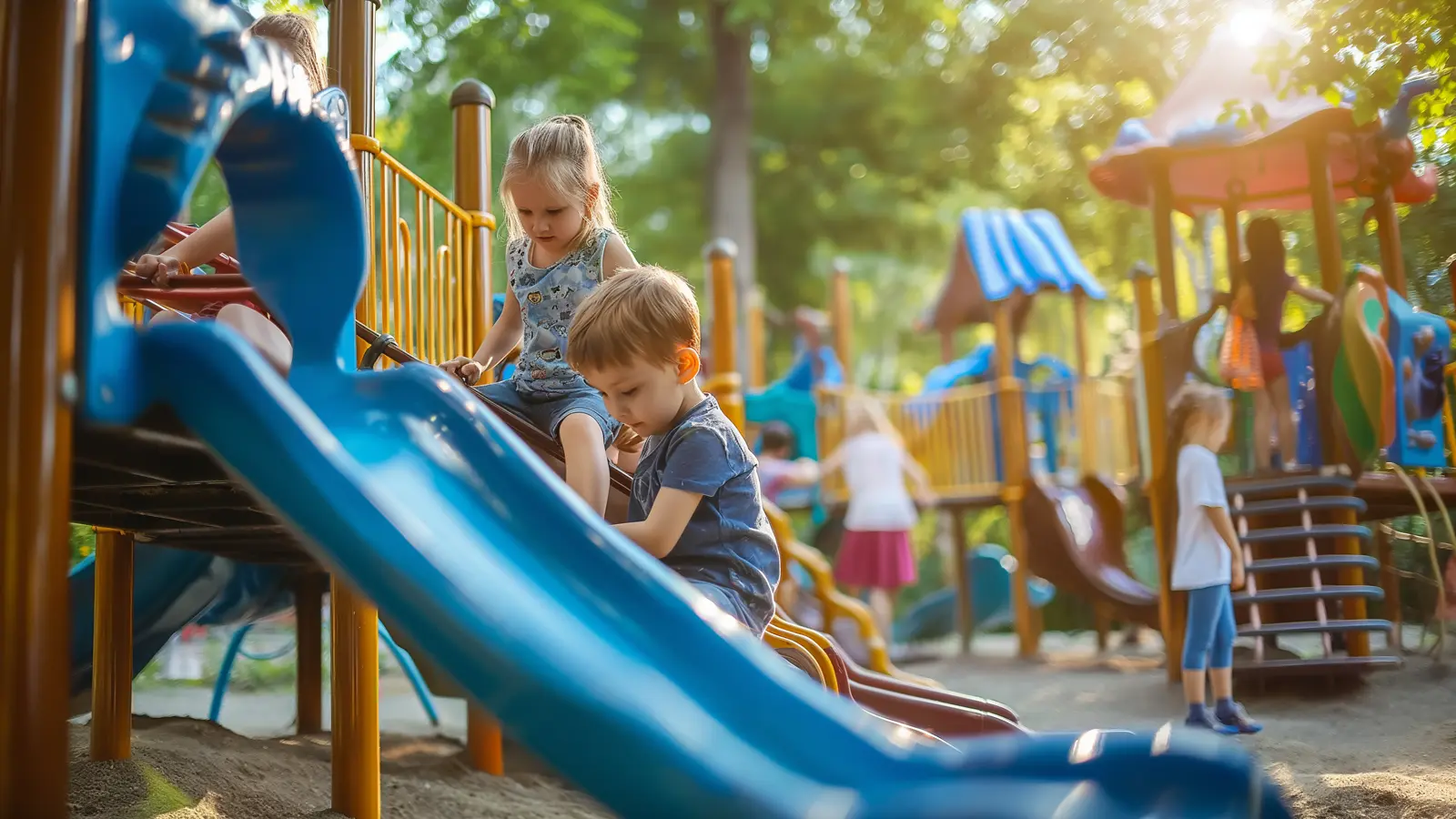
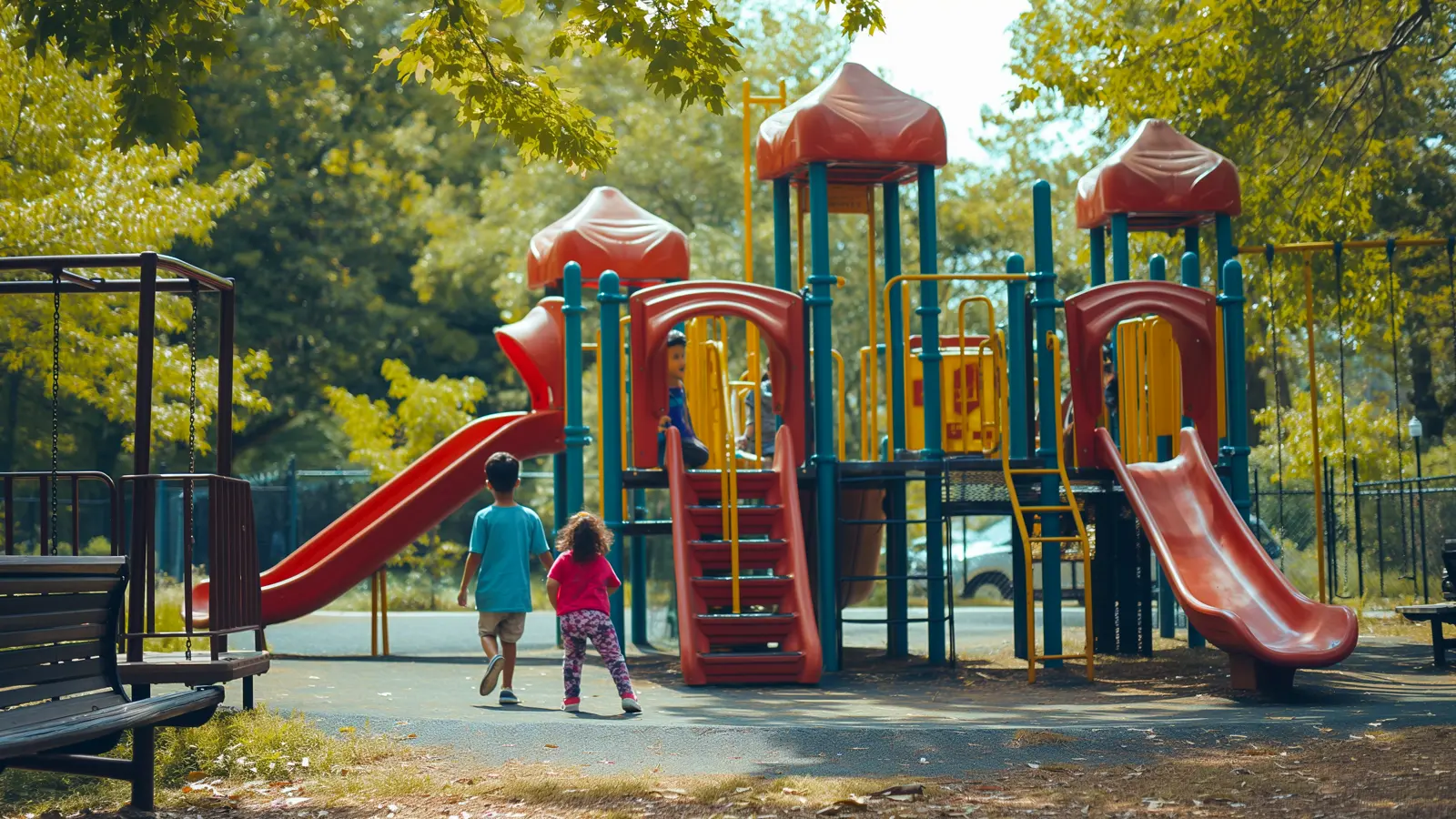
Social and Emotional Development
Playgrounds are key to developing social skills and emotional intelligence. Interacting with other children in a community playground teaches kids valuable lessons about social norms and cooperation. These interactions occur naturally as children engage in group play, where they must communicate, share, and work together. Such social dynamics are essential for developing strong communication skills and understanding how to navigate social situations.
Moreover, playgrounds provide an ideal setting for emotional development. Children learn emotional regulation and resilience through independent play and group interactions. When kids face challenges on playground equipment, they develop perseverance and problem-solving skills, which are crucial for emotional growth. These experiences also help children build self-confidence as they overcome obstacles and achieve goals.
- Social Skills: Playing games with peers on playground equipment helps children learn communication skills and how to work together in group play.
- Emotional Development: Children develop emotional regulation and resilience through independent play and group interactions.
- Self-Esteem: Successfully navigating playground challenges boosts self-confidence and self-esteem, helping children feel capable and accomplished.
These interactions enhance social skills and teach children about empathy and inclusivity, especially in inclusive playgrounds designed for children of different abilities. By playing alongside other kids from diverse backgrounds and abilities, children learn to appreciate differences and develop empathy. This inclusive environment fosters community and belonging, which is vital for emotional development.
Furthermore, playgrounds help children understand and respect social norms. Kids learn to take turns, follow rules, and cooperate with others through play. These valuable lessons prepare them for future social interactions in school and other settings. Playgrounds’ social and emotional benefits extend beyond individual development, creating a more inclusive and empathetic community.
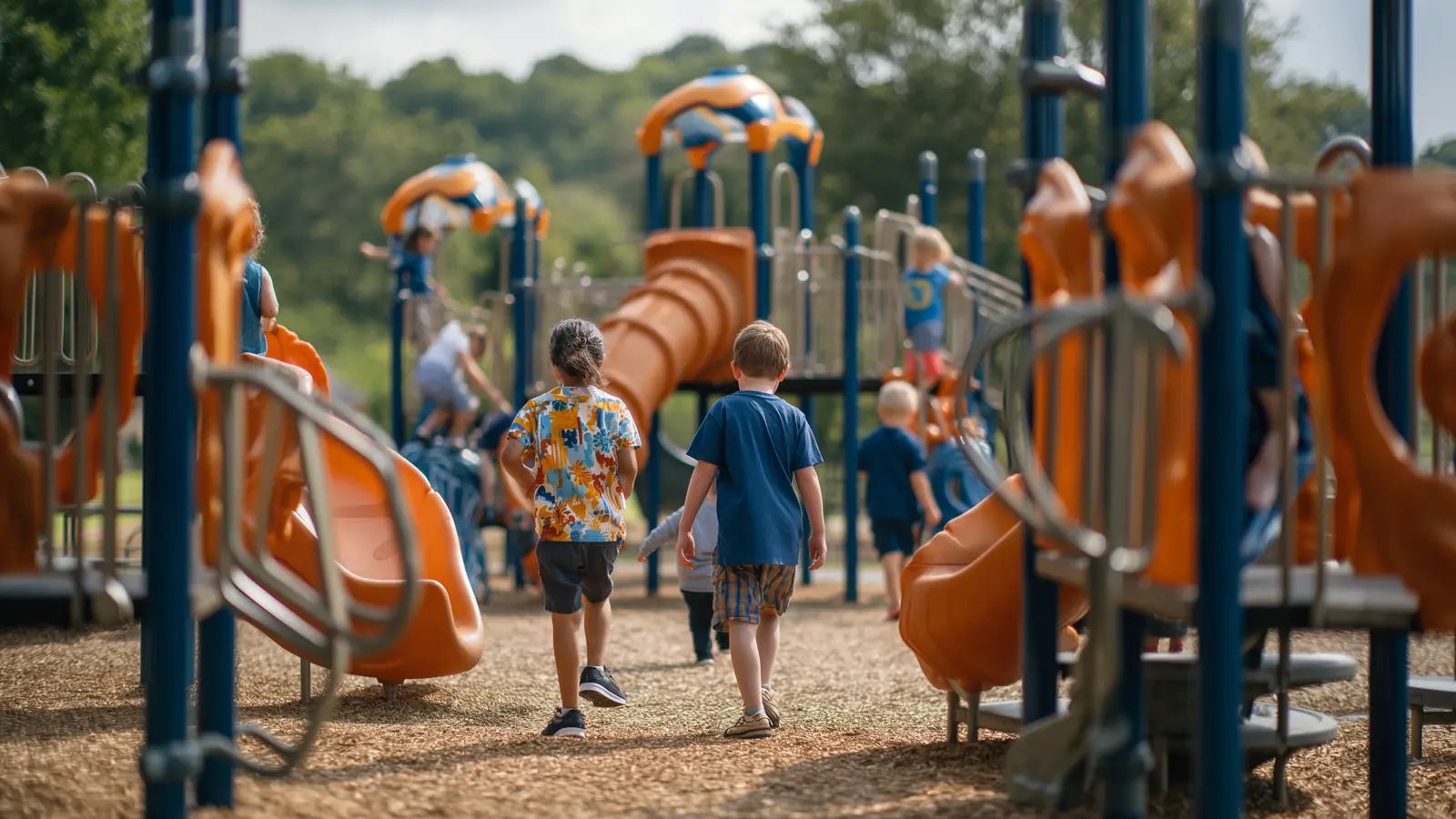
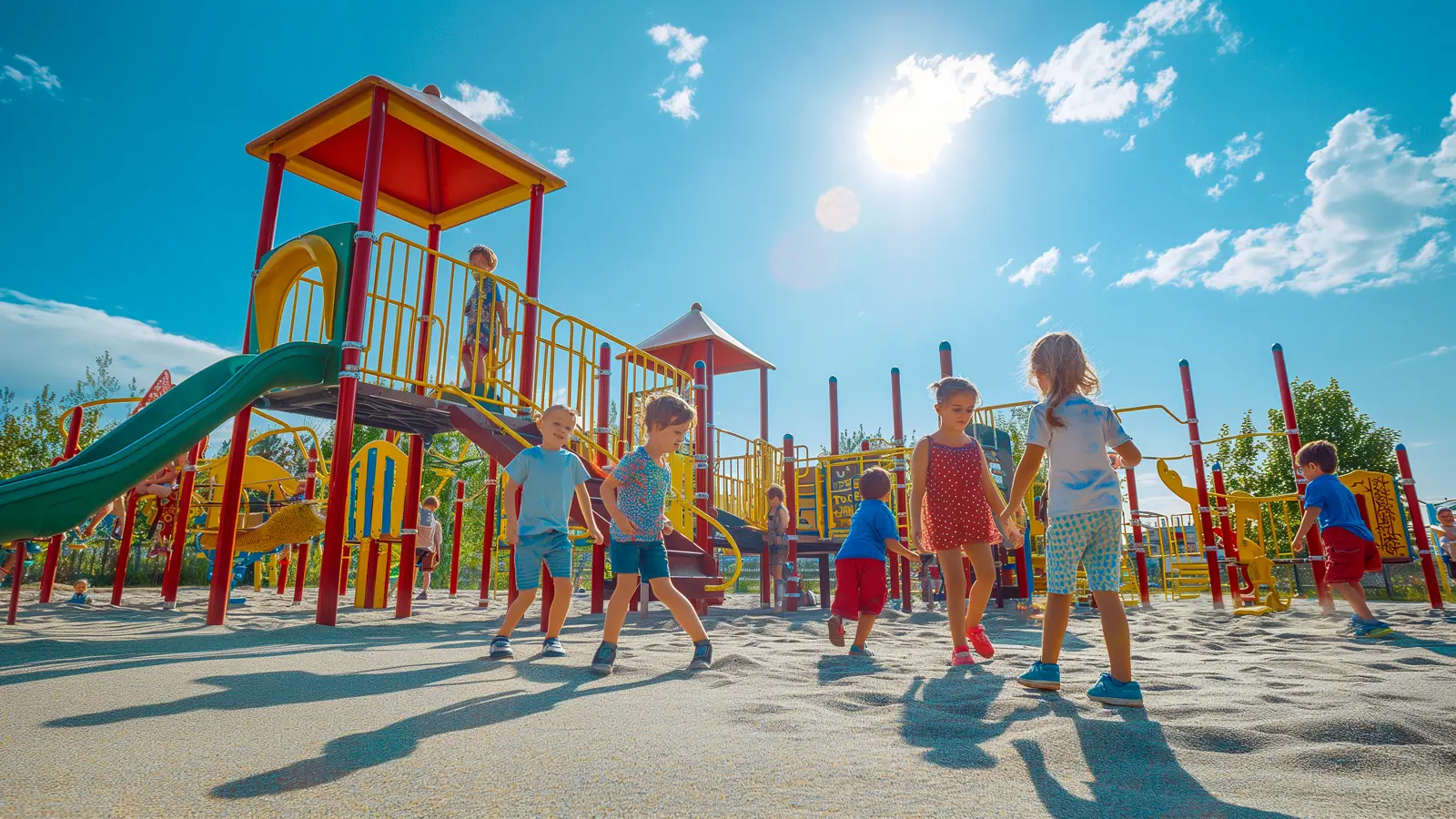
Community and Inclusivity
Community playgrounds and city playgrounds are not just for kids; they benefit the whole community. These areas promote social cohesion by providing a common ground where families and community members can interact and support each other. When children play in these spaces, parents and caregivers often form bonds and create support networks, enhancing community engagement. Such interactions help build a sense of belonging and mutual support within the neighborhood.
Inclusive playgrounds are particularly important for fostering community cohesion. They are designed to ensure that children of all abilities can play together, promoting inclusivity and understanding among children. Inclusive playgrounds teach children about empathy and acceptance by providing a space where everyone is welcome. These environments also provide a valuable lesson in creating spaces accommodating diverse needs, benefiting the entire community.
- Community Engagement: Playgrounds in community parks encourage community members to unite, fostering a sense of belonging and support.
- Inclusive Play: Inclusive playgrounds ensure that children of all abilities can play together, promoting inclusivity and understanding among children.
- Community Benefits: Well-designed playgrounds attract families, enhancing the appeal of community spaces and encouraging an active, healthy lifestyle.
Community playgrounds enhance the overall quality of life and contribute to the community’s well-being by creating spaces where children and adults can engage. These playgrounds encourage families to spend outdoors, promoting physical activity and a healthy lifestyle. Moreover, well-designed playgrounds can increase the attractiveness of community spaces, making them vibrant hubs of activity. This increased foot traffic can also have positive economic impacts, as more people visit local businesses and support the community’s economy.
Community and inclusive playgrounds provide many benefits beyond the immediate joy of play. They are instrumental in building stronger, more connected communities and promoting inclusivity and understanding. By investing in these spaces, communities can ensure that they are not only fostering the development of their youngest members but also enriching the lives of all community members.
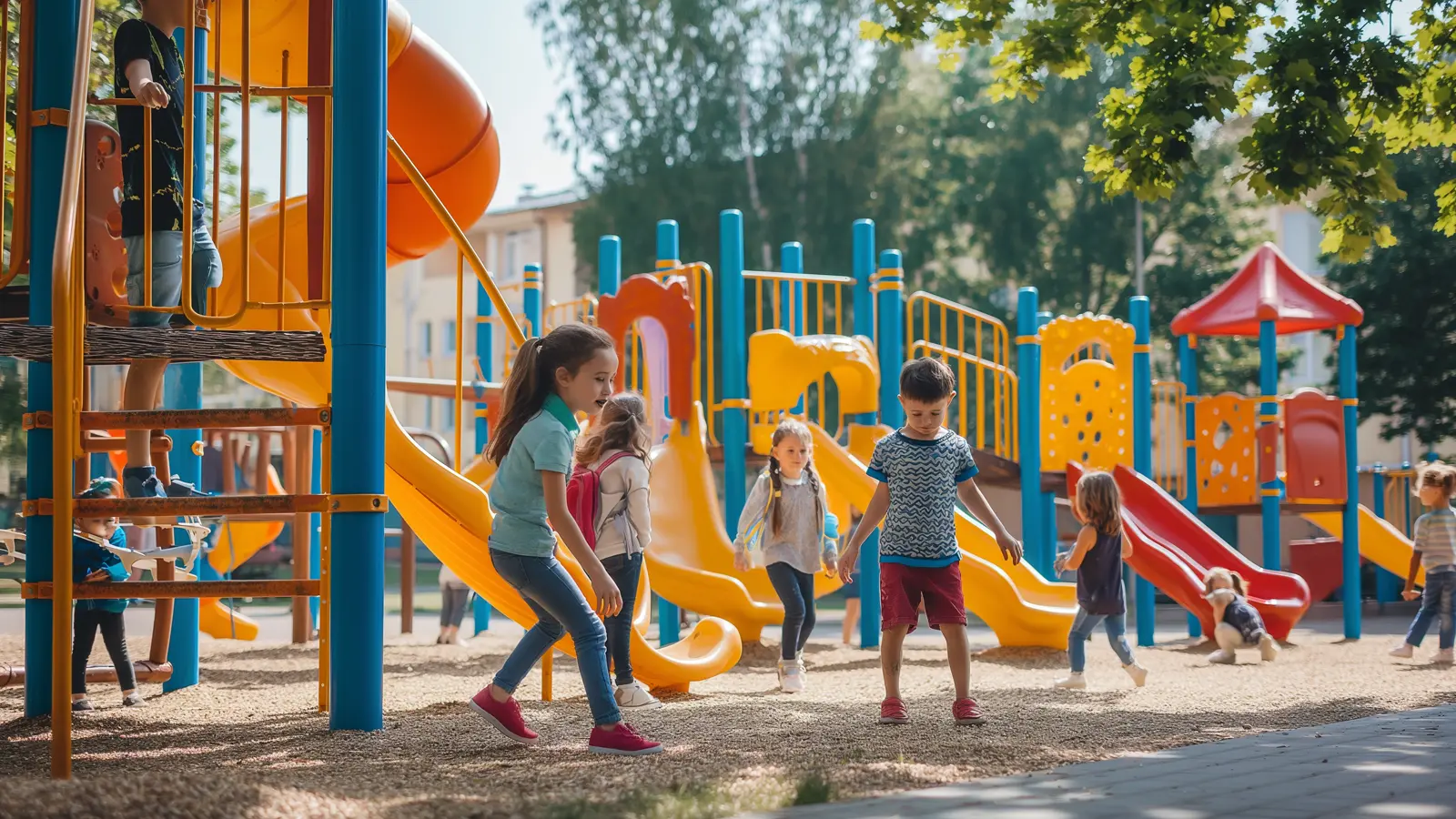

The Multidimensional Benefits of Playgrounds
The benefits of playgrounds are extensive, impacting various aspects of child development. These spaces are vital for promoting physical activity, which helps develop essential motor skills, including fine and gross motor skills. Different types of playground equipment, such as swings, slides, and climbing walls, provide unique opportunities for children to enhance their physical abilities. By encouraging regular physical activity, playgrounds help combat childhood obesity and promote a healthy, active lifestyle, which is crucial for the long-term well-being of children and the entire community.
Playgrounds also significantly contribute to cognitive development. Themed playgrounds with puzzles and interactive equipment stimulate problem-solving abilities and cognitive skills. These activities foster creativity and imaginative play, which is essential for early childhood development. Moreover, playgrounds serve as outdoor learning environments where children can explore the natural world, enhancing their cognitive growth and understanding of the environment. This blend of physical and cognitive challenges makes playgrounds indispensable for nurturing well-rounded, healthy children.
The social and emotional benefits of playgrounds are equally important. These spaces provide a safe environment for children to interact with their peers and learn valuable social norms and communication skills. Inclusive playgrounds ensure children of all abilities can play together, promoting empathy and understanding. Such interactions help build self-esteem and emotional resilience, which are crucial for personal development. Investing in quality playgrounds is not just about individual growth; it is an investment in the entire community’s future. By fostering social cohesion and inclusivity, playgrounds enhance the overall quality of life, making them essential for children’s holistic development and the community’s well-being.
















